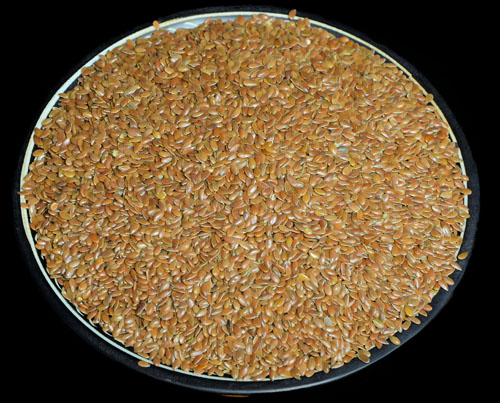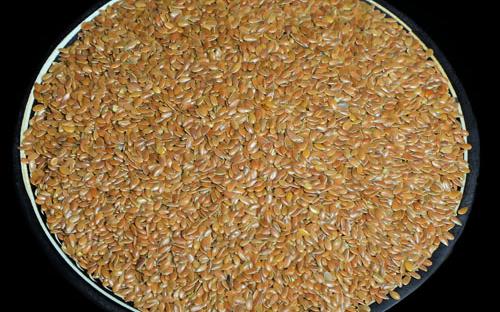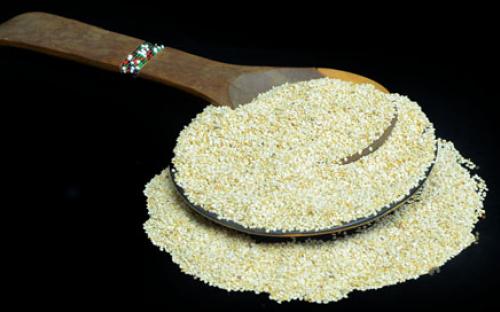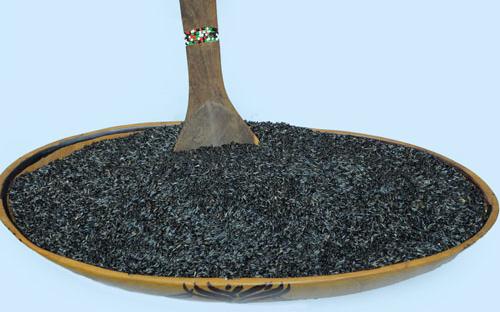Oilseed Crops are grown primarily for the oil contained in the seeds. The oil content of small grains (eg, wheat) is only 1-2%; that of oilseeds ranges from about 20% for soybeans to over 40% for sunflowers and rapeseed (canola). The major world sources of edible seed oils are soybeans, sunflowers, rapeseed, cotton and peanuts. Seed oils from flax (linseed) and castor beans are used for industrial purposes. Edible fats and oils are similar in molecular structure; however, fats are solid at room temperature, while oils are liquid.
Fats and oils are essential nutrients, comprising about 40% of the calories in the diet of the average Canadian. Edible vegetable oils are used as salad or cooking oils, or may be solidified (by a process called hydrogenation) to make margarine and shortening. These products supplement or replace animal products (eg, butter, lard), supplies of which are inadequate to meet the needs of an increasing world population.











